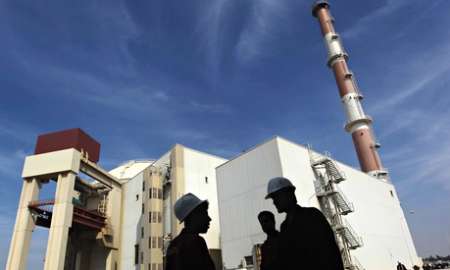ID :
353221
Sat, 01/03/2015 - 07:09
Auther :
Shortlink :
https://oananews.org//node/353221
The shortlink copeid
A nuclear deal with Iran would mean a less volatile world: UK daily

Tehran, Jan 3, IRNA – A report in Wednesday’s issue of The Guardian newspaper has urged the Obama Administration to strike a deal with Iran over its nuclear program, saying that a nuclear deal with Iran would mean a less volatile world.
“There will be no greater diplomatic prize in 2015 than a comprehensive nuclear deal with Iran. In its global significance, it would dwarf the US detente with Cuba, and not just because there are seven times more Iranians than Cubans. This deal will not be about cash machines in the Caribbean, but about nuclear proliferation in the most volatile region on Earth,” comments Julian Borger in his opinion column.
An agreement was supposed to have been reached by 24 November, but Iran and the west were too far apart to make the final leap. After nine months of bargaining, the intricate, multidimensional negotiation boiled down to two main obstacles: Iran’s long-term capacity to enrich uranium, and the speed and scale of sanctions relief.
Iran wants international recognition of its right not just to enrich, but to do so on an industrial scale. It wants to maintain its existing infrastructure of 10,000 centrifuges in operation and another 9,000 on standby, and it wants to be able to scale that capacity up many times.
The US and its allies say Tehran has no need for so much enriched uranium. Its one existing reactor is Russian-built, as are its planned reactors, so all of them come with Russian-supplied fuel as part of the contract.
However, said the article in The Guardian, the west is currently not offering large-scale, immediate sanctions relief in return for such curbs on Iran’s activity. President Barack Obama can only temporarily suspend US congressional sanctions, and western states are prepared to reverse only some elements of UN Security Council sanctions, it said, adding that “the best the west can offer upfront is a lifting of the EU oil embargo.”
According to Julian Borger, these gaps remain substantial, but none of the parties involved can walk away from the table. “A collapse of talks would lead to a slide back to the edge of conflict between Iran and Israel; the latter has vowed to launch military strikes rather than allow the former to build a bomb. It could also trigger a wave of proliferation across the region and beyond as other countries hedge their bets.”
So the parties to the talks have given themselves more time – until 1 March 2015 – to agree a framework deal for bridging them and until 1 July to work out all of the details. They have resumed meetings in Geneva, with an emphasis on sessions between the two most important countries, the US and Iran. “The trouble is that, while the diplomats inside the chamber sense that they are still making progress in closing the gaps, the sceptics back home just see deceit and playing for time by the other side,: commented Borger.
This is particularly true of the US Congress. A new Republican-controlled Senate will convene on 6 January. From that date, the White House can no longer rely on a Democratic majority leader to keep new sanctions legislation off the Senate floor. The legislation now under discussion could take the form of triggered sanctions, which would come into effect if there was no deal by a target date. That would add urgency to the negotiations, undoubtedly a good thing, but it would also provoke counter-measures from Iran’s parliament, the Majlis, and a very volatile environment, said the article.
It concluded by saying: “It is possible that the Republican leadership in the Senate will choose other battles to fight with the president before trying to build a veto-proof majority on sanctions, but the pressure will build exponentially if there is no deal on the table on 1 March. It could be the most important diplomatic date of the year.”/end





